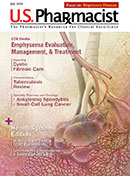Moderna, Inc. released data from its phase III trial of mRNA-1283, an investigational next-generation COVID-19 vaccine. The trial has met its primary efficacy endpoint, demonstrating noninferior vaccine efficacy against COVID-19 compared with Spikevax. The company also announced that higher efficacy was observed in adults aged 18 years and older compared with Spikevax (mRNA-1273), with a consistent trend observed in the subset of adults aged 65 years and older. Positive interim immunogenicity results for mRNA-1283 in this study were previously reported in March 2024.
Stéphane Bancel, CEO of Moderna, stated, “We are very pleased that mRNA-1283 has now met its primary vaccine efficacy endpoint in Phase 3 and showed higher efficacy in adults compared to Spikevax. With five vaccine programs that have achieved positive Phase 3 results, Moderna’s platform is consistently demonstrating its ability to address significant unmet needs in public health.”
The ongoing phase III clinical trial is a randomized, observer-blind, active-controlled study of nearly 11,400 individuals aged 12 years and older. In this trial, 50% of the participants received a 10-mcg dose of mRNA-1283, while the other one-half received a 50-mcg dose of mRNA-1273 (Spikevax).
The recent vaccine efficacy data are consistent with the previously announced immunogenicity results from the study, which showed that mRNA-1283 had higher neutralizing antibody responses against both Omicron BA.4/5 and ancestral SARS-CoV-2 than mRNA-1273, with the greatest geometric mean titer ratios observed in adults and in the subset of participants aged 65 years and older.
In the trial, mRNA-1283 was discovered to have a comparable safety profile with Spikevax. The most commonly reported adverse effects were injection site pain, fatigue, headache, and myalgia.
Moderna’s combination vaccine candidate against influenza and COVID-19, mRNA-1083, includes mRNA-1283, which recently yielded positive results in its separate phase III trial. Moderna plans to present the phase III clinical data for mRNA-1283 at an upcoming conference and submit them for publication. The company will also engage with regulators on the program’s next steps.
The content contained in this article is for informational purposes only. The content is not intended to be a substitute for professional advice. Reliance on any information provided in this article is solely at your own risk.
Published July 18, 2024






